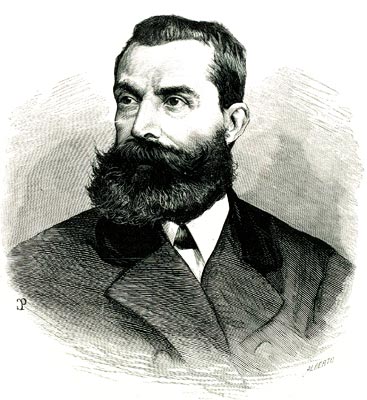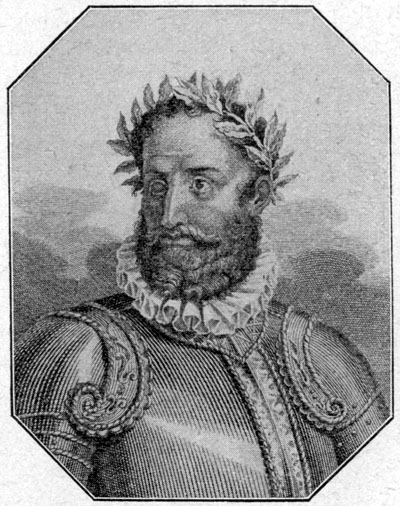|
João De Deus De Nogueira Ramos
João de Deus de Nogueira Ramos (8 March 1830 – 11 January 1896), better known as João de Deus, was a Portuguese poet, pedagogue and editor who turned his attention to Portuguese educational problems and wrote the famous didactic book ''Cartilha Maternal'' (1876), used to teach Portuguese language during both the 19th and 20th centuries across the country. Biography He was born in São Bartolomeu de Messines, Silves, in the Portuguese province of Algarve, son of Pedro José Ramos (son of José dos Ramos and wife Joaquina Maria) and wife Isabel Gertrudes Martins (daughter of Manuel Martins and wife Gertrudes Angélica). Matriculating in the faculty of law at the University of Coimbra, he did not proceed to his degree but settled in the city, dedicating himself wholly to the composition of verses, which circulated among professors and undergraduates in manuscript copies. In the volume of his art, as in the conduct of life, he practised a rigorous self-control. He printed nothin ... [...More Info...] [...Related Items...] OR: [Wikipedia] [Google] [Baidu] |
São Bartolomeu De Messines
São Bartolomeu de Messines, also referred to as Messines, is a town and civil parish in the municipality of Silves, in Algarve region, Portugal. The population of the civil parish in 2011 was 8,430, in an area of 239.87 km2. History Traces of the Paleolithic and Neolithic vestiges have shown that this place was inhabited since the beginning of humanity. Although the Roman occupation has long been attested, it was between the years 2009 and 2014, during excavations in this parish, that was discovered a Roman villa, now known as the Roman Villa of Corte. This villa was the first building complex of the Roman period, located in the Algarve ''barrocal'' area, and the most important structure of this period, excavated in the Algarve region. The discovery of objects imported from southern Italy and Greece, allow researchers to assume that the people who lived in this place would have a high social status, showing some prosperity, and the discovery of materials related to textile pro ... [...More Info...] [...Related Items...] OR: [Wikipedia] [Google] [Baidu] |
Viscount
A viscount ( , for male) or viscountess (, for female) is a title used in certain European countries for a noble of varying status. In many countries a viscount, and its historical equivalents, was a non-hereditary, administrative or judicial position, and did not develop into a hereditary title until much later. In the case of French viscounts, it is customary to leave the title untranslated as vicomte . Etymology The word ''viscount'' comes from Old French (Modern French: ), itself from Medieval Latin , accusative of , from Late Latin "deputy" + Latin (originally "companion"; later Roman imperial courtier or trusted appointee, ultimately count). History During the Carolingian Empire, the kings appointed counts to administer provinces and other smaller regions, as governors and military commanders. Viscounts were appointed to assist the counts in their running of the province, and often took on judicial responsibility. The kings strictly prevented the offices of their coun ... [...More Info...] [...Related Items...] OR: [Wikipedia] [Google] [Baidu] |
Public Opinion
Public opinion is the collective opinion on a specific topic or voting intention relevant to a society. It is the people's views on matters affecting them. Etymology The term "public opinion" was derived from the French ', which was first used in 1588 by Michel de Montaigne in the second edition of his ''Essays'' (ch. XXII). The French term also appears in the 1761 work ''Julie, or the New Heloise'' by Jean-Jacques Rousseau. Precursors of the phrase in English include William Temple's "general opinion" (appearing in his 1672 work ''On the Original and Nature of Government'') and John Locke's "law of opinion" (appearing in his 1689 work ''An Essay Concerning Human Understanding''). History The emergence of public opinion as a significant force in the political realm dates to the late 17th century, but opinion had been regarded as having singular importance much earlier. Medieval ''fama publica'' or ''vox et fama communis'' had great legal and social importance from the 12 ... [...More Info...] [...Related Items...] OR: [Wikipedia] [Google] [Baidu] |
Almeida Garrett
João Baptista da Silva Leitão de Almeida Garrett, 1st Viscount of Almeida Garrett (; 4 February 1799 – 9 December 1854) was a Portuguese poet, orator, playwright, novelist, journalist, politician, and a peer of the realm. A major promoter of theater in Portugal he is considered the greatest figure of Portuguese Romanticism and a true revolutionary and humanist. He proposed the construction of the D. Maria II National Theatre and the creation of the Conservatory of Dramatic Art. Biography Garrett was born in Porto, the son of António Bernardo da Silva Garrett (1739–1834), a fidalgo of the Royal Household and knight of the Order of Christ, and his wife (they were married in 1796) Ana Augusta de Almeida Leitão (b. Porto, c. 1770). At an early age, around 4 or 5 years old, Garrett changed his name to João Baptista da Silva Leitão, adding a name from his godfather and altering the order of his surnames. In 1809, his family fled the second French invasion carried out by ... [...More Info...] [...Related Items...] OR: [Wikipedia] [Google] [Baidu] |
João De Deus By Vallotton
João is the Portuguese equivalent of the given name John. The diminutive is Joãozinho and the feminine is Joana. It is widespread in Portuguese-speaking countries. Notable people with the name are enumerated in the sections below. Kings * João I of Kongo, ruled 1470–1509 * João II of Lemba or João Manuel II of Kongo, ruled 1680–1716 * Dharmapala of Kotte, last King of the Kingdom of Kotte, reigned 1551–1597 Princes * João Manuel, Hereditary Prince of Portugal (1537–1554), son of John III * Infante João, Duke of Beja (1842–1861) Arts and literature * João Bosco, Brazilian musician * João Cabral de Melo Neto, Brazilian poet and diplomat * Joao Constancia, Filipino singer, actor and dancer * João Donato, Brazilian musician * João de Deus de Nogueira Ramos, Portuguese poet * João Gilberto, Brazilian musician * João Guimarães Rosa, Brazilian novelist, short story writer, and diplomat * João Miguel (actor), Brazilian actor * João Nogueira, Brazilian music ... [...More Info...] [...Related Items...] OR: [Wikipedia] [Google] [Baidu] |
Teófilo Braga
Joaquim Teófilo Fernandes Braga (; 24 February 1843 – 28 January 1924) was a Portuguese writer, playwright, politician and the leader of the Republican Provisional Government after the overthrow of King Manuel II, as well as the second elected president of the First Portuguese Republic, after the resignation of President Manuel de Arriaga. Biography Teófilo Braga was born in the Azores, in São José, Ponta Delgada, his father was Joaquim Manuel Fernandes Braga who probably a descendant of one of King João V’s illegitimate children, most likely António of Braganza who was a Doctor in Theology, knight of Order of Christ and known for one of 3 Children of Palhavã. His mother was Maria José da Câmara e Albuquerque, from the island of Santa Maria, another descendant of Portuguese nobility because she was probably traced to Infanta D. Urraca, who was the one of King Afonso III’s illegitimate children, as the genealogist Ferreira Serpa has shown. Teófilo was the 1 ... [...More Info...] [...Related Items...] OR: [Wikipedia] [Google] [Baidu] |
Luís De Camões
Luís Vaz de Camões (; sometimes rendered in English as Camoens or Camoëns, ; c. 1524 or 1525 – 10 June 1580) is considered Portugal's and the Portuguese language's greatest poet. His mastery of verse has been compared to that of Shakespeare, Milton, Vondel, Homer, Virgil and Dante. He wrote a considerable amount of lyrical poetry and drama but is best remembered for his epic work '' Os Lusíadas'' (''The Lusiads''). His collection of poetry ''The Parnasum of Luís de Camões'' was lost during his life. The influence of his masterpiece ''Os Lusíadas'' is so profound that Portuguese is sometimes called the "language of Camões". The day of his death, 10 June OS, is Portugal's national day. Life Origins and youth Much of the information about Luís de Camões' biography raises doubts and, probably, much of what circulates about him is nothing more than the typical folklore that is formed around a famous figure. Only a few dates are documented that guide its trajectory. ... [...More Info...] [...Related Items...] OR: [Wikipedia] [Google] [Baidu] |
Jeronymite
The Hieronymites, also formally known as the Order of Saint Jerome ( la, Ordo Sancti Hieronymi; abbreviated OSH), is a Catholic cloistered religious order and a common name for several congregations of hermit monks living according to the Rule of Saint Augustine, though the role principle of their lives is the 5th-century hermit and biblical scholar Jerome. The principal group with this name was founded in the Iberian Peninsula around the 14th century. Their religious habit is a white tunic with a brown, hooded scapular and a brown mantle. For liturgical services, they wear a brown cowl. Iberian Hieronymites Origins Established near Toledo, Spain, the order developed from a spontaneous interest of a number of eremitical communities in both Spain and Portugal in imitating the life of Jerome and Paula of Rome. This way of life soon became widespread in Spain. Two of these hermits, Pedro Fernández y Pecha and Fernando Yáñez y de Figueroa, decided it would be more advantageou ... [...More Info...] [...Related Items...] OR: [Wikipedia] [Google] [Baidu] |
Pornographic
Pornography (often shortened to porn or porno) is the portrayal of Human sexual activity, sexual subject matter for the exclusive purpose of sexual arousal. Primarily intended for adults,"Kids Need Porn Literacy" – Marty Klein, ''Psychology Today'', 30 October 2016 pornography is presented in a variety of media, including pornographic magazine, magazines, erotic art, art, Erotic literature, literature, Erotic photography, photography, Spoken word album, audio, Pornographic film, film, Cartoon pornography, animation, and Sexual content in video games, video games. [...More Info...] [...Related Items...] OR: [Wikipedia] [Google] [Baidu] |
Friedrich Fröbel
Friedrich Wilhelm August Fröbel or Froebel (; 21 April 1782 – 21 June 1852) was a German pedagogue, a student of Johann Heinrich Pestalozzi, who laid the foundation for modern education based on the recognition that children have unique needs and capabilities. He created the concept of the ''kindergarten'' and coined the word, which soon entered the English language as well. He also developed the educational toys known as Froebel gifts. Biography Friedrich Fröbel was born at Oberweißbach in the Principality of Schwarzburg-Rudolstadt in Thuringia. A cousin of his was the mother of Henriette Schrader-Breymann, and Henriette became a student of his. Fröbel's father, Johann Jacob Fröbel, who died in 1802, was the pastor of the orthodox Lutheran (alt-lutherisch) parish there. Fröbel's mother's name was Jacobine Eleonore Friederike (born Hoffmann). The church and Lutheran Christian faith were pillars in Fröbel's own early education. Oberweißbach was a wealthy village in th ... [...More Info...] [...Related Items...] OR: [Wikipedia] [Google] [Baidu] |





